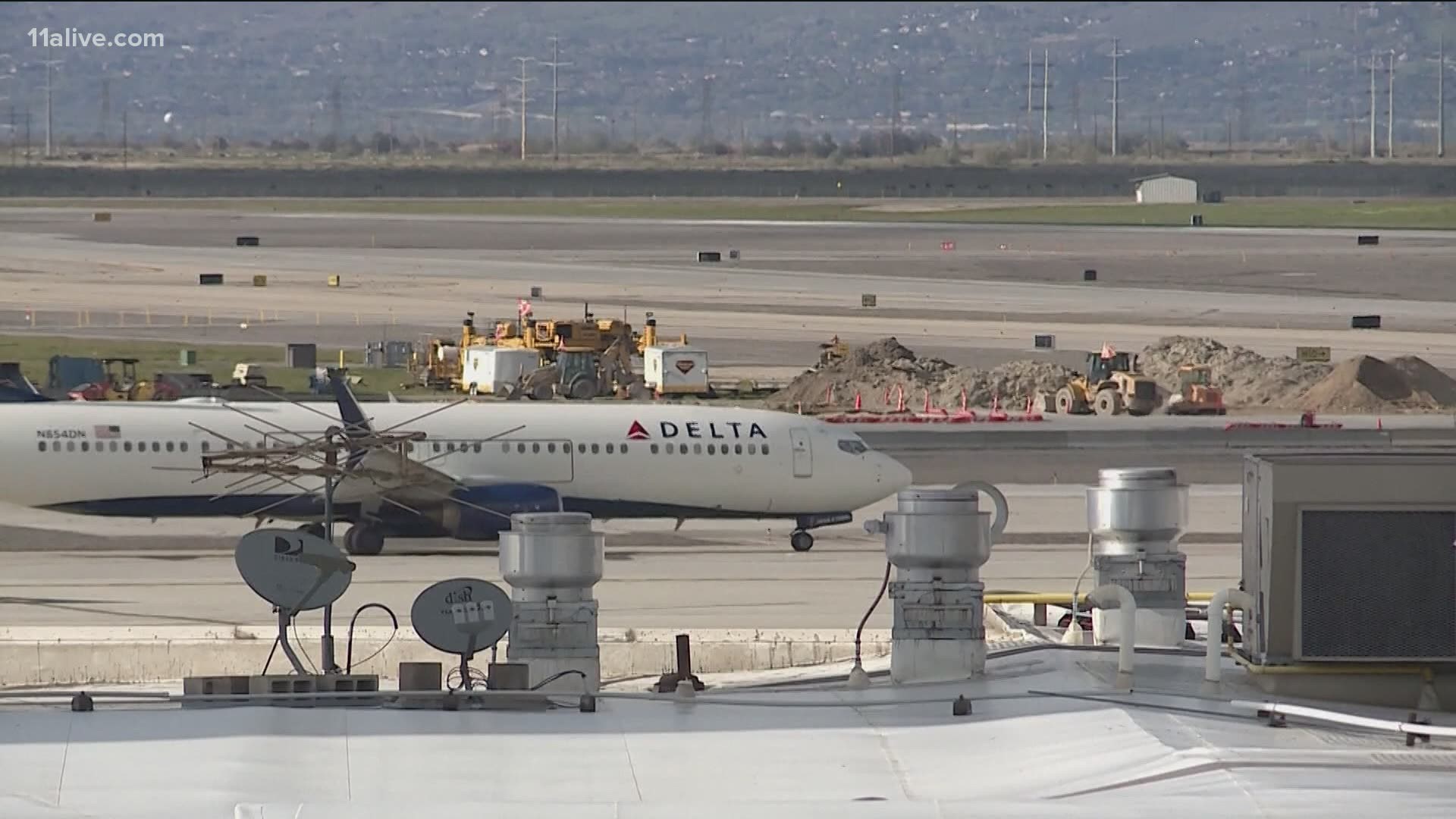ATLANTA — While the country is still grappling with COVID-19, Hartsfield-Jackson International Airport and airline officials are preparing for a possible increase in travel.
“We put together a playbook so that everyone is on the same page,” assured Paul Meyer the airport's assistant general manager. "Everyone knows what facilities may be open, what facilities may be closed."
During a press briefing Tuesday morning, officials from different departments at Hartsfield-Jackson, and officials from both Delta and Southwest Airlines, discussed what they are doing to keep both passengers and employees safe.
For example, once a passenger is inside Hartsfield-Jackson, wearing a face mask is required. There are social distancing stickers on the floor.
The airport said it has also stepped up cleaning and started increasing the frequency of the Plane Train that takes passengers to different parts of the airport. The goal there is to keep fewer people on board at one time.
As for Delta and Southwest, over the past several months, the airlines said they have put an emphasis on sanitizing and cleaning planes. Both airlines are also boarding fliers in smaller groups and requiring face masks. Both have also extended their policies blocking middle seats.
In a video, Delta said it has installed plexiglass barriers at all counters, and it is cleaning kiosks and counters throughout the day
Southwest said it has stopped serving food and drinks.
“We’ve also retained our own medical professionals and infectious disease experts to help guide us during this pandemic,” said Quinnie Jenkins with Southwest Airlines.
The increased safety efforts come as the airline and travel industry, bruised by the coronavirus pandemic, struggles to cope after global travel plummeted - the number of people getting on planes in the U.S. is down nearly 70% from a year ago.
The latest effort by House Democrats to give more aid to the nation's airlines has failed, as well. House Democrats accused Republicans of blocking consideration of a bill that would give the airlines and their contractors up to $28.8 billion to avoid furloughs for six more months. That, after American and United began laying off 32,000 workers.
Material from the Associated Press contributed to this report.

